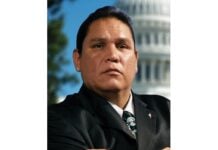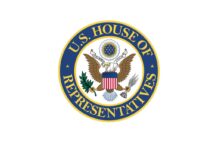by David Vialpando
When a crime occurs in a casino, rare as that may be, several resources are available to deal with the problem and which entity takes the lead in coordinating a response depends on several factors. Since formal guidelines and procedures rarely exist, it’s prudent for relevant stakeholders to communicate ahead of time to ensure maximum protection of life and property and accountability for those who would perpetrate crimes in casinos.
Several industry components have a role in protecting casinos from crime and responding when it occurs. These include casino management, security personnel, surveillance operators, gaming regulators, and law enforcement. The primary goal when a crime occurs is to mitigate injury to persons, loss to the victim, identification of perpetrators, and collection of evidence for criminal prosecution and/or civil action.
Coordinating an appropriate response and conducting a thorough investigation will depend on the nature of the offense and, all too often, which of the previously identified components uncovers the crime. Crimes of violence and possession of contraband, such as assaults, weapons possession and drug possession, are typically handled by casino security, with assistance from surveillance, and either resolved or turned over to law enforcement for disposition.
Property crimes, such as theft of casino property, vehicle burglary, theft of patron funds, etc., are likewise typically reported to casino security and may involve casino management. The matter may be turned over to law enforcement for further investigation, particularly if suspects have been identified or are in custody, and evidence gathered may include witness statements and surveillance video footage. Tribal gaming investigators are rarely involved in crimes of violence or property crimes other than receiving and reviewing incident and surveillance reports after the fact.
More sophisticated crimes, such as employee embezzlement, gaming device and table game cheats, collusion, technology-related crime such a cybercrime, and organized crime involving multiple casino visits, are typically led by whichever casino component first discovers the crime. Technology-related crime may be discovered by the casino’s IT department and the investigation conducted by casino management. The casino’s surveillance department frequently uncovers sophisticated insider-perpetrated and organized crime involving multiple individuals. Surveillance personnel may endeavor to gather as much information as possible, usually through surveillance review and data collection. While the surveillance department may coordinate their investigative efforts with casino management, and perhaps even casino security, they may not involve tribal gaming investigators until well after the crime has developed and time has passed.
There is an advantage to having management, security, surveillance and tribal gaming investigators working together early whenever a crime is discovered, particularly sophisticated crimes involving several offenders. Tribal gaming investigators, who are frequently former and retired law enforcement officers, have contacts with local, state, and federal investigative agencies, such as the DHS, IRS, the FBI, and state gaming investigators. They also possess an understanding of the rules of evidence such as chain of custody and best evidence rule, interviewing techniques, and have the time to conduct thorough investigations crucial to successful prosecutions. A failure to employ this team approach may result in disrupting sophisticated criminal activity prematurely, preventing the identification of all individuals involved or all potential evidence from being gathered.
An example of sophisticated criminal activity targeting the casino gaming industry was the Tran Cheat Case, United States v. Van Thu Tran, Case Number: 07-cr-01312-JAH-2 (S.D. Cal. Oct. 15, 2012). Without the close collaboration and coordination of all the stakeholders mentioned above, multiple law enforcement agencies at every level of government, and numerous prosecutors’ offices, the forty-two defendants victimizing twenty-nine casinos across the U.S. and Canada responsible for over $7 million dollars in casino losses would likely not have been held accountable.
A tribal gaming investigator recently led an investigation of several individuals who were stealing patron account credits at a Northern California casino through counterfeit player cards and dark web technology. Law enforcement subsequently discovered more serious crimes victimizing the surrounding community committed by the same group of criminals.
Even relatively low-level embezzlement cases can benefit from the experience and knowledge of tribal gaming investigators. Gaming regulators know that introducing law enforcement too early in an investigation may prevent casino and gaming investigators from gathering valuable evidence. Law enforcement officers are bound by Constitutional protections afforded to those accused of crimes, such as search and seizure limitations outlined in the Fourth Amendment and the requirement to advise subjects of their Miranda rights prior to questioning under the Fifth Amendment. Casino employees and tribal gaming investigators, as private citizens, have no such limitations, so questioning can be conducted without a Miranda advisement and an employee’s person and belongings may be subject to search depending on casino policy.
Introducing law enforcement too early may result in the future defendant alleging that the casino employee or gaming investigator communicating with law enforcement was acting as an agent of law enforcement when the defendant was questioned or searched requiring activation of the Constitutional protections mentioned above. If the court agrees, any evidence or statements gathered may be excluded as evidence.
Tribal gaming regulators oversee casino employee licensing, which can serve as an incentive to cooperation in an investigation. Recently, a casino employee was observed stealing fifty dollars in tips from a casino toke box. Casino security interviewed the employee and casino management suspended the individual. Upon notification, a tribal gaming investigator contacted the employee and convinced him to report to the gaming commission to discuss his gaming license. During the subsequent interview, the employee confessed to stealing $6,000 which he still had at his residence. The investigator directed the employee to recover the money and bring it to the casino. The employee returned with the money he’d stolen and signed a voluntary statement.
Thoughtful and considered investigative protocols developed early and involving casino management, security, surveillance, tribal gaming regulators, local law enforcement and state gaming investigators can yield positive results in detecting and resolving crime, ensuring successful prosecutions, civil actions, restitution, and ensuring the safety of casino patrons, employees, and visitors.
David Vialpando is Executive Director of the Pala Gaming Commission and Vice-Chairman of Tribal Gaming Protection Network. He can be reached by calling (760) 510-4559 or email [email protected].












































